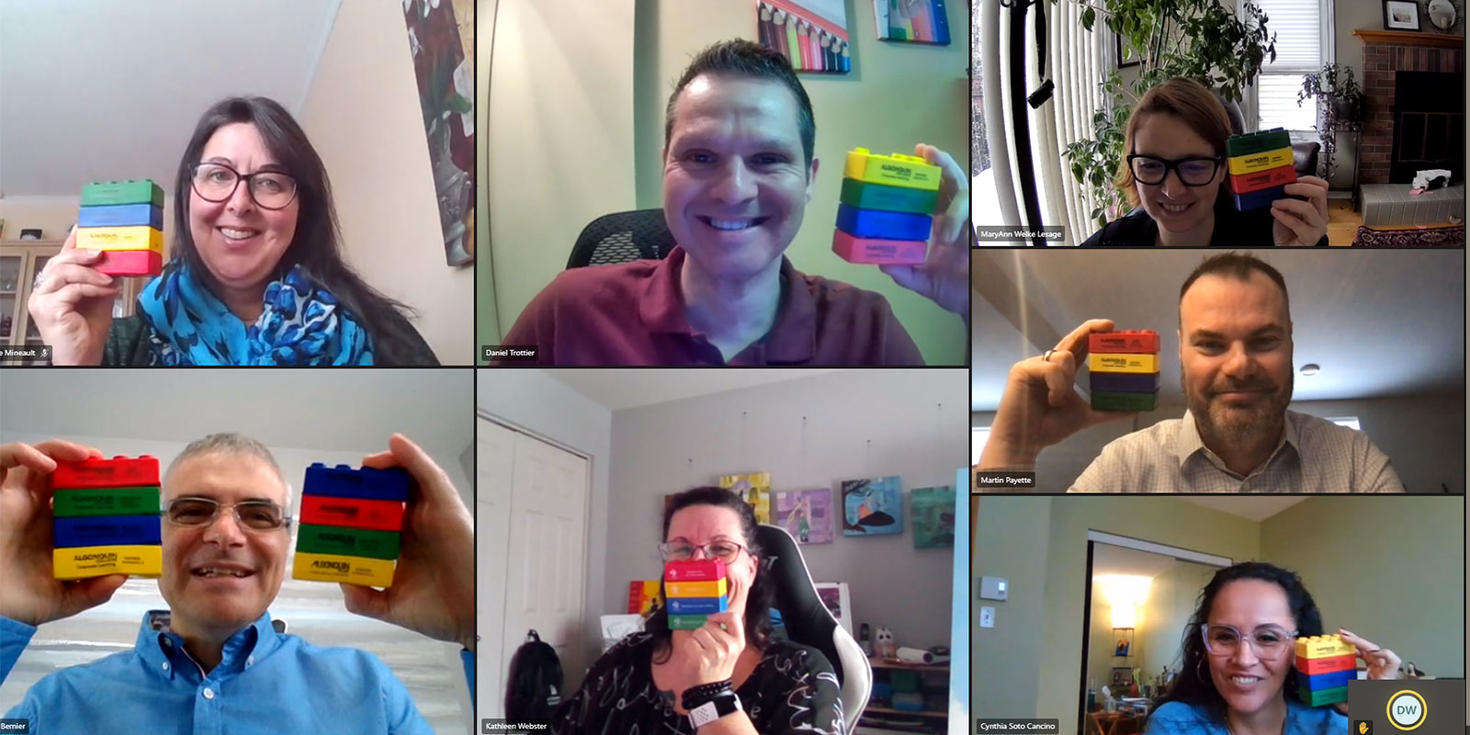Information Technology has been on a journey to embrace new ways of working, collaborating and communicating to advance priorities outlined in Transformation 2030 and the Digital Campus Transformation Plan. This renewed teamwork mentality started with a Teamwork, communication and trust workshop and has continued on a path towards personal development.
Your preferences affect the world around you
Have you ever thought about how your personal preferences affect your day-to-day interactions? Or how you respond to changes in the workplace? Information Technology managers and the executive management team recently completed their individual DYNAMIX profiles, with the goal of improving self-awareness. The individual profiles summarize behavioural preferences and outline ways for communicating.
“In our workplace, diversity is an asset. We all come from different backgrounds, have our own personal preferences and ways of communicating and interacting with others,” explains Chief Information Officer Martin Bernier. “Our goal is to not only improve individual performance, but to above all, advance the way we perform as a team comprised of diverse individuals. By getting to know ourselves better and applying that self-awareness to our relationships, we improve our trust in each other and make our teams stronger.”
Martin’s experience and story with the profiles is a testament to how self-awareness and acting with intention can be a catalyst for change. Having previously completed the exercise before joining the University, and revisiting again with Information Technology, the profile results show his predominant traits have changed with time.

Alex Dipietro, IT Manager, who organized the workshop for Information Technology managers said that the exercise was an excellent growth opportunity. He described, “The workshop allowed me to interact and get to know my colleagues but more importantly, I was learning about myself and how to improve my interactions with staff as their Manager.” From a team-building perspective, sharing profiles with managers, colleagues, and staff, provided an opportunity to look at strengths and weaknesses and jointly discuss opportunities for improvement.
In this period of remote working, building trust and teamwork has never been more imperative. The executive management team found their first session so valuable in developing an understanding of one another and as a team, they are already planning on completing the remaining sessions focused on the rest of the trust pyramid. Having multiple levels of management complete the exercise develops a common lexicon and shared understanding in discussing communications’ preferences. As Chantal Sabourin, Chief Administrative Officer says, “It is always good to step back and discuss these issues with objectivity to allow and create a space for positive change.”
Many IT managers have already shared their profiles and have initiated conversations in their teams. Staff now await to learn more about the ones for Information Technology’s executive team.
